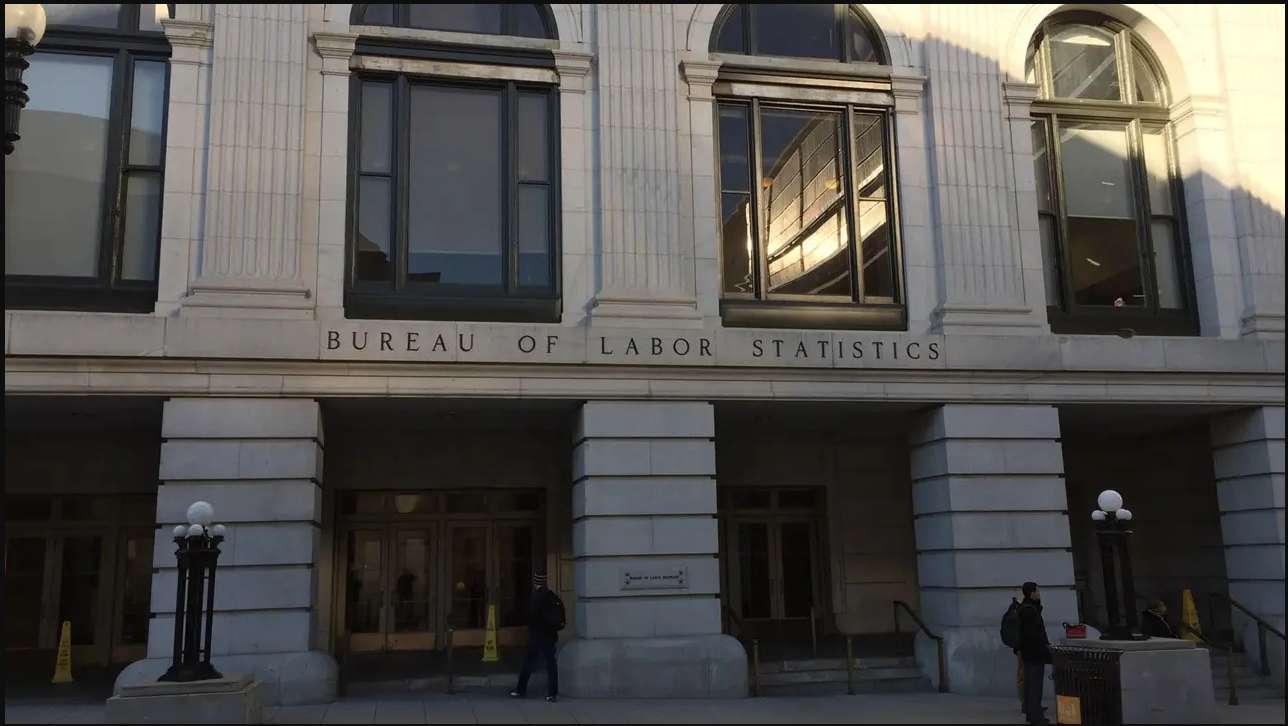The fate of Robert F. Kennedy Jr.'s nomination to be Secretary of the Department of Health and Human Services may rest in the hands of GOP Sen. Bill Cassidy of Louisiana, a physician-turned-politician.
Cassidy's background may play a role in whether he attempts to abort Kennedy's nomination. Here is an excerpt from the biography on his official Senate website:
In 1990, Bill joined LSU Medical School teaching medical students and residents at Earl K. Long Hospital, a hospital for the uninsured.
During this time, he co-founded the Greater Baton Rouge Community Clinic, a clinic providing free dental and health care to the working uninsured. Bill also created a private-public partnership to vaccinate 36,000 greater Baton Rouge area children against Hepatitis B at no cost to the schools or parents.
Cassidy's medical background has left him "struggling" to support Kennedy's confirmation after listening to the nominee's evasive responses about his prior anti-vaccine opinions during separate hearings last week before the Senate Finance and Health, Education, Labor and Pensions committees.
Most of the Republican senators on the two committees showed they needed a proctologist to get their heads out of the butt of the Criminal-in-Chief by expressing their support for the completely unqualified nominee.
Cassidy may ultimately cave to pressure from fellow Republican and President Donald Trump to support Kennedy's nomination. But he is less prone to MAGA threats than other GOP senators.
That's because he already has a primary challenger. In December, Louisiana State Treasurer John Fleming , a founding member of the House Freedom Caucus, announced that he will run in 2026 for the seat held by Cassidy, citing the two-term senator's vote to convict Trump in his second impeachment trial that followed the Jan. 6, 2021 attack on the Capitol. However, Louisiana holds an open primary with the top two candidates advancing to a run-off.
Assuming all 47 Democratic caucus members vote against Kennedy, it would take four GOP senators to scuttle his nomination. So far no Republican senator has publicly voiced opposition to Kennedy's nomination,
But three GOP senators voted against Fox News host Pete Hegseth's nomination for Secretary of Defense – Sens. Susan Collins of Maine, Lisa Murkowski of Alaska and Mitch McConnell of Kentucky.
Murkowski and Collins, both members of the Senate health committee who expressed concerns about Kennedy's anti-vaccine opinions, have not said how they plan to vote on his confirmation.
McConnell, who was stricken with polio as a child in the 1940s before vaccines were available, released a statement on Dec. 13 after Trump announced Kennedy's HHS nomination. McConnell said:
“Efforts to undermine public confidence in proven cures are not just uninformed – they’re dangerous. ... I have never flinched from confronting specious disinformation that threatens the advance of lifesaving medical progress, and I will not today."
McConnell also did not meet with Kennedy in the run-up to his confirmation hearings.
During the hearings, Kennedy defused concerns expressed by some Republicans over his support for abortion rights when he was seeking the Democratic presidential nomination.
Kennedy repeatedly said that he agreed "with President Trump that every abortion is a tragedy" and said he would study the abortion pill mifepristone for "safety issues." New Hampshire Sen. Maggie Hassan and other Democrats said numerous studies have already proven the drug's safety.
The Senate Finance Committee, which has a 9-8 Republican majority, is scheduled to vote on Tuesday on whether to recommend Kennedy's confirmation to become the nation's top health official.
Kennedy's approval by the committee is far from certain because Cassidy, who is also chair of the Senate health committee, has expressed reservations.
During the Finance committee hearing, under questioning from Cassidy, Kennedy revealed a disturbing lack of knowledge about Medicare and Medicaid – the two major health insurance programs which cover about one-third of the U.S. population.
Huffpost wrote that Kennedy's answers about these programs "were halting, vague and in some instances flat-out incorrect," especially when he was talking about Medicaid, Here's what Kennedy said about Medicaid (which is for people with low incomes):
“Medicaid is a, um, has, is fully paid for by the federal government,” Kennedy said.
In reality, more than 30% of the funding comes from states.
“The premiums are too high,” he said, coming back to that point later in the exchange when he asked rhetorically, “Are the premiums low enough?”
Actually, Medicaid doesn’t have premiums, except in special circumstances and under state waivers.
During the hearing, Kennedy also said he thought "more people would rather be on Medicare Advantage, because it offers very good services,” signaling his support for privatizing Medicare, NBC News reported. Medicare Advantage plans, which are run by the biggest private insurers such as United HealthCare, have been accused of overcharging the government and delaying and denying access to care.
That only served to underscore a key point made by Caroline Kennedy, a former ambassador and the daughter of President John F. Kennedy, in a damning letter to senators warning that her cousin Bobby was totally unqualified to be HHS secretary.
Oregon Democratic Sen. Ron Wyden, the ranking member of the Senate Finance Committee, put Caroline Kennedy's letter into the record before delivering his opening remarks at the Finance committee hearing.
"Overseeing the FDA, the NIH, the CDC, and Centers for Medicare and Medicaid Services – agencies that are charged with protecting the most vulnerable among us – is an enormous responsibility, and one that Bobby is unqualified to fill. He lacks any relevant government, financial, management, or medical experience. His views on vaccines are dangerous and willfully misinformed."
During the Health committee hearing, RFK Jr. gave evasive answers to Cassidy when he was questioned on whether he would accept the data showing there is no link between the measles or Hepatitis B vaccines and autism.
In his closing statement to the Health committee, Cassidy began by stating that a friend texted him about two children who had recently died in an intensive care at a Baton Rouge hospital from vaccine preventable diseases.
"So my concern is that if there’s any false note, any undermining of a mama’s trust in vaccines another person will die from a vaccine preventable disease. ... Now my responsibility is to learn, try and determine if you can be trusted to support the best public health."
Cassidy then asked whether Kennedy would work "to improve the health of Americans or to undermine it, always asking for more evidence and never accepting the evidence that is there. … And that is why I’ve been struggling with your nomination."
He added: "Does a 71-year old man who has spent decades criticizing vaccines and who is financially vested in finding fault with vaccines, can he change his attitudes and approach now that he’ll have the most important position influencing vaccine policy in the United States. Will you continue what you have been or will you overturn a new leaf. ... And I got to figure that out for my vote."
If Cassidy or any other Republicans decide to oppose Kennedy's nomination they can find cover in editorials published by two newspapers that are part of the Murdoch media empire – the New York Post and the Wall Street Journal.
The New York Post recalled that in April 2024, Trump, in a post on his Truth Social platform, denounced Kennedy as "a Radical Left Lunatic."
The tabloid wrote:
But nothing has changed about Kennedy from last spring. He’s still a radical left lunatic who is anti-energy, a “big time” taxer and completely incoherent about our nation’s health.
No Republican can vote for this guy. No senator should.
The president and his team insist that RFK Jr. has been fitted with a policy straitjacket — that certain areas such as vaccines and objecting to energy strategy are off-limits.
But in truth, the only straitjacket suitable for RFK Jr. is a real one.
The editorial concluded:
We sincerely believe Trump would live to regret a Secretary Kennedy. We know the United States would. ... This is the wrong man in the wrong job. Send him packing.
The Wall Street Journal was a bit more restrained. It described the political deal that Trump had made with Kennedy.
“President Trump nominated Robert F. Kennedy Jr. as Health and Human Services secretary in return for his presidential endorsement,” the Journal’s editorial board wrote. “But Senate Republicans have an obligation to scrutinize his giant closet of business conflicts and dubious ideas.”
Even if enough Senate Republicans develop a spine and reject Kennedy's nomination, Trump likely has already lined up a slightly less outrageous replacement nominee who would do his bidding. That's what happened when he subbed Florida Attorney General Pam Bondi for former Rep. Matt Gaetz as his AG nominee.
And this reflects how everything about Trump as a candidate and president is transactional.














Comments
We want Uncharted Blue to be a welcoming and progressive space.
Before commenting, make sure you've read our Community Guidelines.